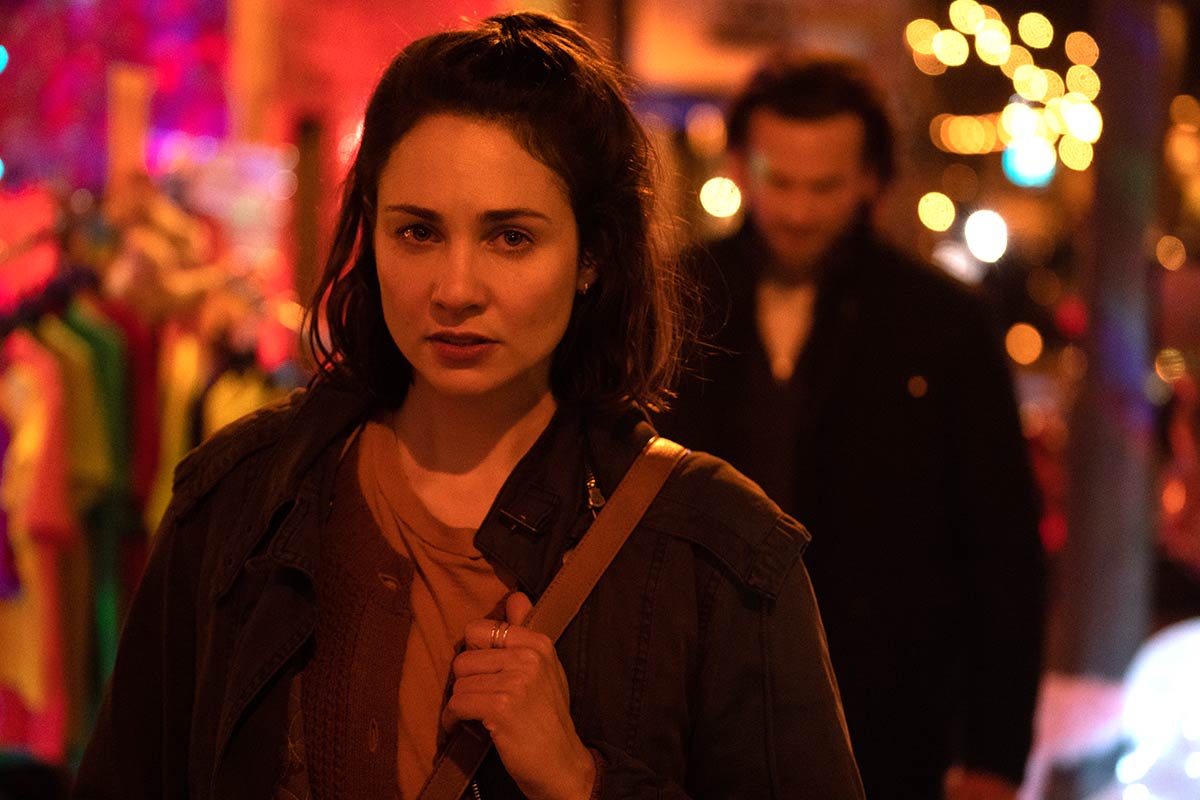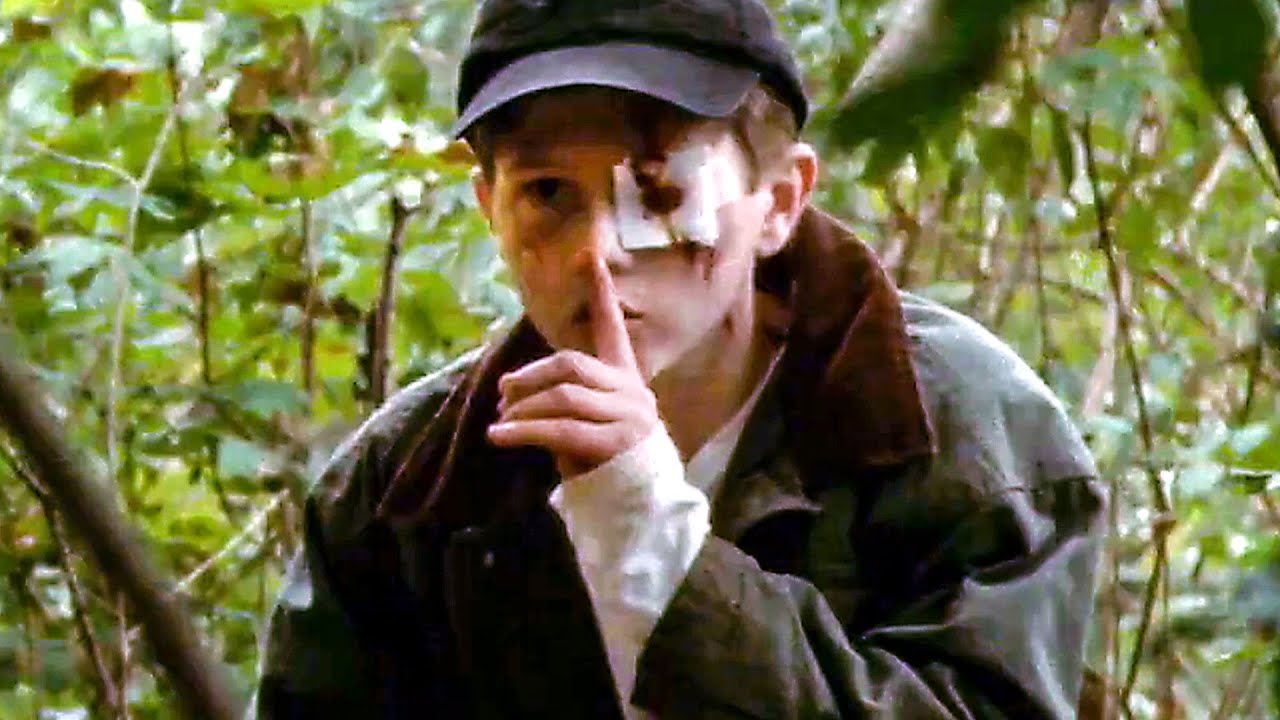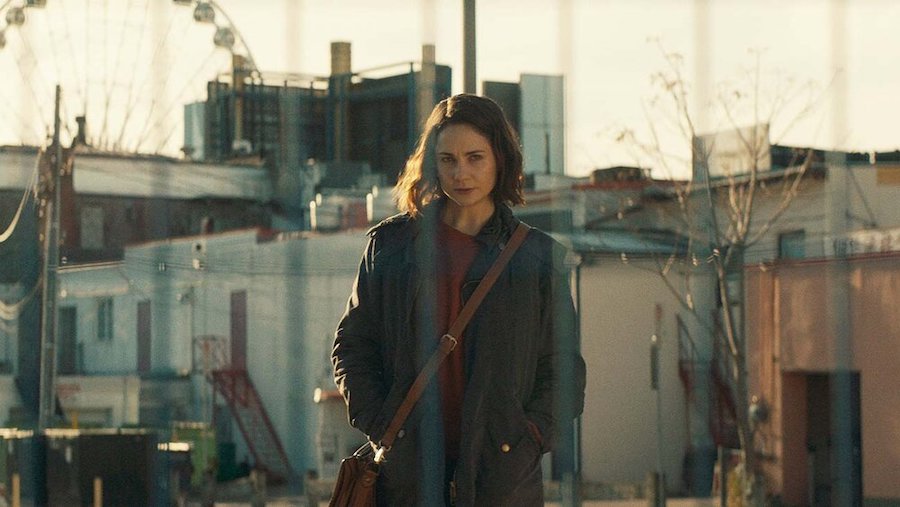‘Disappearance at Clifton Hill’ is a thriller that juggles the elements of crime and psychology. At its center is the story of a woman who claims that she saw a boy being abducted when she was a child. However, she reports it twenty-five years after the event happened, and by this time, she has too many stains on her reputation. The people around her are wary of whether or not to believe her, and as we get to know about her personal problems, we question her motives as well. In the end, another twist reframes the entire event. If you haven’t seen the film yet, bookmark this article for later. SPOILERS AHEAD
Plot Summary
As a child, Abby witnesses the abduction of a boy. Twenty-five years later, we find her on a bus back to her hometown, where she has to settle a deal made by her dead mother. There is some friction between her and her sister, Laure, who has trouble trusting her.
While going through old photographs, Abby notices the car that she had seen all those years ago. Her memories are triggered, and she starts digging into the murders and kidnappings around that time. She enlists her sister and a local conspiracy theory podcaster, Walter, to help her make sense of the details she digs up. All this time, tensions also arise due to her own behavior. It turns out that Abby is a pathological liar.
Did Charlie Kill Alex?

The story of ‘Disappearance at Clifton Hill’ begins with a kidnapping. When little Abby sees Alex being taken away by strangers, she has a very narrow perspective. She knows nothing about the boy, who he is, why he is being kidnapped, and where does he end up. Twenty-five years later, when she picks up the case again, she does so with the possibility that the boy is probably dead. Her suspicions are confirmed when she identifies him as Alex, who had died around the same time she had witnessed his abduction.
There is hardly anything more nefarious than the murder of a child. When Abby starts her investigation, she is full of several questions, all of which eventually lead her to wonder why someone would kill a boy? What did he know? What did he do? There couldn’t be any good reason why all this happened to him, and there would be no excuse for making it any less than an evil act. So, if anyone were to be involved in it in any manner, it would be something terrible.
What good could come out of the disappearance of a child? Abby thinks so, Walter thinks so, and so does the audience. And this is precisely where the trouble begins. When we lose the objectivity to see the events logically, our judgment is hampered. Take, for instance, Walter. He had been biased about Charlie and his family since the beginning. Even when Abby tells him that Alex was kidnapped because of his parents, he doesn’t give it much thought. Instead of re-evaluating his beliefs and wondering if he did get something wrong, he blames Abby for getting in a business deal with Charlie. He has convinced himself of his version of the truth, and wouldn’t have it any other way.
This misguided confidence of his seeps into Abby, who, despite coming very close to the truth, finds one reason or another to connect Charlie to it. She, too, convinces herself of her own version of the truth. However, the last scene proves her wrong. It turns out that Charlie didn’t kill Alex after all.
The Ending
Abby tries to get a confession from the Moulins, but they turn out to be more dangerous than she had imagined. It becomes clear to her that they had almost killed their son, but she was yet to find how exactly to connect it to Charlie. The only witness she had was Bev’s husband. She frees him from his imprisonment in the exchange of coming clean about everything. He tells them about the kidnapping, which brings the Moulins as well as Charlie in the line of fire. Now, the only thing that remains is the trial.
The story makes headlines, and meanwhile, Abby tries to bring her life back on track. She starts working as a manager at a hotel. One day, a strange guest arrives at the hotel and makes Abby reconsider her perception of the case.
Is Alex Alive?

The focal point of Abby’s investigation was Alex. She had followed the leads on the fact that he had been murdered. In the end, however, she realizes that she had been wrong about a lot of things, simply because she had started with a false lead. Alex is not dead.
What really happened is this. The Moulins tried to pull their son into the family business. He had to pass the test of confronting the tiger, which he was not ready for. The tiger attacked him, and Alex lost his one eye. After this incident, he tried to run away, knowing that his parents would again throw him in front of the tiger sooner or later. The Moulins sent Bev and her husband to get back Alex. What the couple didn’t know was that Bev had taken pictures of Alex’s injuries. She blackmailed them, and they paid her the sum that acted as her lottery ticket out of this life.
The kidnapping that Abby witnessed was Alex trying to run away from his parents. Bev and her husband left him on the farm, as was agreed. However, before the Moulins could get there, Charlie did. He helped Alex escape and even faked his death to get the cops and his parents off his scent. He was in a position where he could help Alex financially, and he didn’t do it because there was something sexual between them. He really had taken Alex under his wing in a healthy way and had grown attached to him.
Charlie helped him create a new and safer life for himself somewhere far from Niagara Falls. The boy was never to return, not until he discovered that the man who had saved him was arrested for his murder. He comes back to town to come clean about everything, and the case is finally solved.
Read More: Best Crime Movies Ever Made


You must be logged in to post a comment.